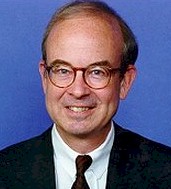Re: transition to digital television (DTV).
Date: July 25, 2002.
Source: Office of Rep. Boucher.

| Letter from Rep. Rick Boucher (D-VA) to FCC
Chairman Michael Powell. Re: transition to digital television (DTV). Date: July 25, 2002. Source: Office of Rep. Boucher. |
 |
|
|
|
||
July 25, 2002
Honorable Michael K. Powell
Chairman
Federal Communications Commission
445 12th Street, S.W.
Washington, D.C. 20554
Dear Chairman Powell:
Several of my congressional colleagues have asked the Commission to take action as to a range of pending matters, in order to energize the digital television (DTV) transition. I urge you, in so doing, to rationalize the Commission's actions, so as to spur technical innovation and create value, rather than mere expense, for consumers.
I am among those who have urged action with respect to mandatory inclusion of DTV tuners in larger screen size television receivers, where enhanced resolution would be evident to consumers. Taking this action alone, however, would confer a benefit, at most, on the fifteen percent of consumers who do not rely on cable or satellite for signal acquisition, while imposing significant, redundant costs on all other purchasers. This is why I have also urged you, twice, to take steps to resolve obstacles to the use of DTV receivers to tune digital cable signals as well. In this latter respect, Congress directed the Commission to assure such an outcome in 1996; the Commission issued a Report & Order in 1998, and launched a review, which still remains open, in September 2000.
Resolving cable and broadcast tuner issues together would be a win-win proposition for consumers. It is my understanding that a manufacturer addressing both obligations at once would be able to integrate these functions, so as to provide value for cable subscribers, many of whom would no longer need to rent a set-top 'converter' box. Such a rationalized approach would provide real efficiency and value to consumers while relieving the cable industry of demands on capital. It would allow cable operators to use scarce capital to invest in enhancing networks to serve additional broadcasters.
I further understand that, while technical obstacles toward joint inclusion of cable and broadcast DTV tuners have been substantially overcome, the "PHILA" license issues, as to which I have written you twice before, are no closer to resolution. Manufacturers to whom license versions have been offered claim that the proffered license would arrogate powers to cable operators, and their agent CableLabs, well beyond those allowed by Commission regulations (see 47 CFR 76.1201, 1204). To finally resolve this issue, I urge potential licensees to come forward with versions of this license that would in their view comport with FCC regulations. I would then urge the Commission to use its jurisdiction to call the parties together, to hammer out acceptable license terms plus any proposed amendments to FCC regulations, to assure that the final license provisions exert only such licensee powers as FCC rules allow.
Missing this opportunity, now, would require a generation of DTV receivers designed for redundancy and expense, rather than value, and providing little actual service to the DTV transition, apart from counting toward spectrum return deadlines. In joining my colleagues in urging a pro-active approach, I urge the Commission to coordinate its activities so as to achieve real technological progress and create value. Consumers should receive the benefit of their bargain when they switch to DTV.
Thanking you for your time and attention to this matter, I remain
Sincerely,
Rick Boucher
Member of Congress
CC: Commissioner Kathleen Q. Abernathy
Commissioner Michael J. Copps
Commissioner Kevin J. Martin
W. Kenneth Ferree, Chief, Media
Bureau